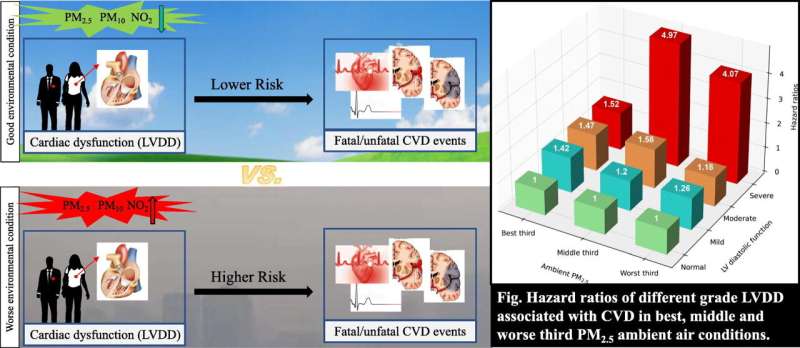
It has long been suspected that exposure to indoor and outdoor air pollutants may increase an individual’s risk for cardiovascular mortality and morbidity.
A new study jointly conducted by atmospheric scientists and cardiac experts provides new epidemiological evidence. They found that indoor and outdoor air pollution would substantially increase cardiovascular risks.
The study was published in Science of the Total Environment.
Researchers from the Institute of Atmospheric Physics (IAP) of the Chinese Academy of Sciences derived the high-resolution air pollutants via the atmospheric chemical models while the cardiac experts from the National Cardiovascular Center at Beijing Fuwai Hospital assigned the datasets to more than 20,000 people participating in a China Hypertension Survey.
By applying several statistical models the team found that outdoor air pollution may greatly accelerate the conversion from cardiac dysfunction to cardiovascular diseases.
“Our study calls for more social attention paid to patients with cardiac dysfunction living in the heavily contaminated areas and establishment of early prevention system of cardiovascular disease,” said Prof. Wang Zengwu, the director of Division of Prevention and Community Health at Beijing Fuwai Hospital and corresponding author of this study.
Their previous collaborative study suggested that the risk of developing fatal or nonfatal stroke would increase by 50% for those who use indoor solid fuel heating compared with those using clean fuels.
“Our new study has just confirmed that reducing both indoor and outdoor air pollution is instrumental in reducing risks of cardiovascular diseases,” said Prof. Huang Gang from IAP.
Li Yuan, Chinese Academy of Sciences

